Search
Search Results

Definition
Persepolis
Persepolis was the capital of the Persian Achaemenid Empire from the reign of Darius I (the Great, r. 522-486 BCE) until its destruction in 330 BCE. Its name comes from the Greek Perses-polis (Persian City), but the Persians knew it as Parsa...

Image
Persepolis
Ruins of Persepolis.
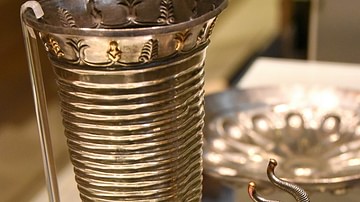
Definition
Ancient Persian Art and Architecture
Persian art and architecture in the present day is associated with the nation of Iran and usually designated as beginning with the Achaemenid Empire (c. 550-330 BCE) but has an even longer history with its origins dating back to before the...
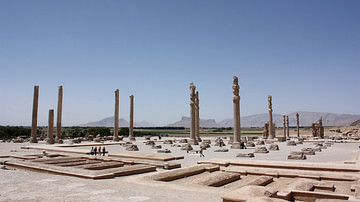
Article
Alexander the Great & the Burning of Persepolis
In the year 330 BCE Alexander the Great (l. 356-323 BCE) conquered the Achaemenid Persian Empire following his victory over the Persian Emperor Darius III (r. 336-330 BCE) at the Battle of Gaugamela in 331 BCE. After Darius III's defeat...
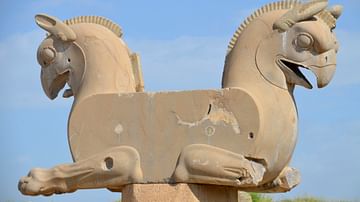
Article
Discovering the Glories of Persia
Iran, or Persia as it was formerly known, is a country with a long and rich history stretching back thousands of years and where many civilisations thrived. With 24 historical sites registered on the UNESCO World Heritage List and each with...
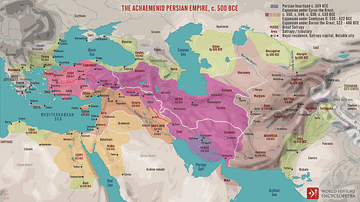
Definition
Achaemenid Empire
East of the Zagros Mountains, a high plateau stretches off towards India. While Egypt was rising up against the Hyksos, a wave of pastoral tribes from north of the Caspian Sea was drifting down into this area and across into India. By the...
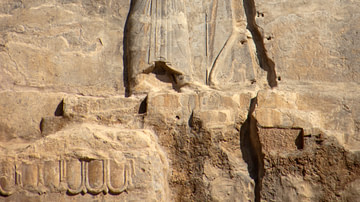
Image
Artaxerxes II in Relief, Persepolis
Relief depicting Artaxerxes II (r. 404-358 BCE) on the entry to his tomb. Persepolis, Fars Province, Iran.
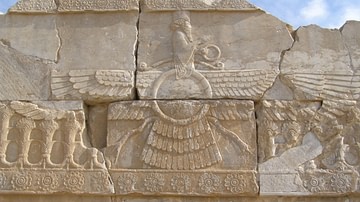
Image
Faravahar at Persepolis
Stone carved Faravahar in Persepolis. Faravahar is one of the best-known symbols of Zoroastrianism, the state religion of ancient Iran.
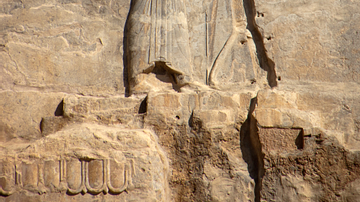
Image
Artaxerxes II in Relief, Persepolis
Relief depicting Artaxerxes II (r. 404-358 BCE) on the entry to his tomb. Persepolis, Fars Province, Iran.
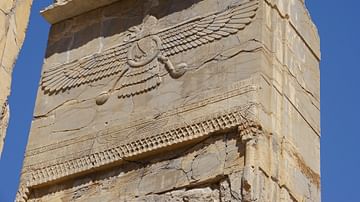
Definition
Faravahar
The faravahar is the best-known symbol from ancient Persia of the winged sun disk with a seated male figure in the center. It is thought to represent Ahura Mazda, the god of Zoroastrianism, but has also been interpreted to signify other concepts...